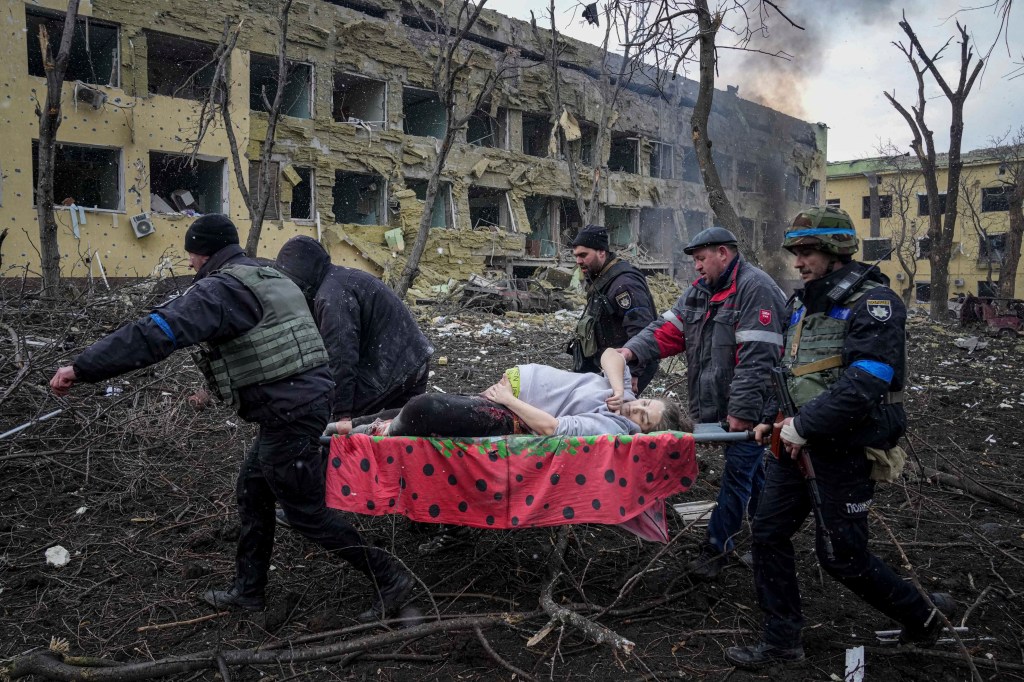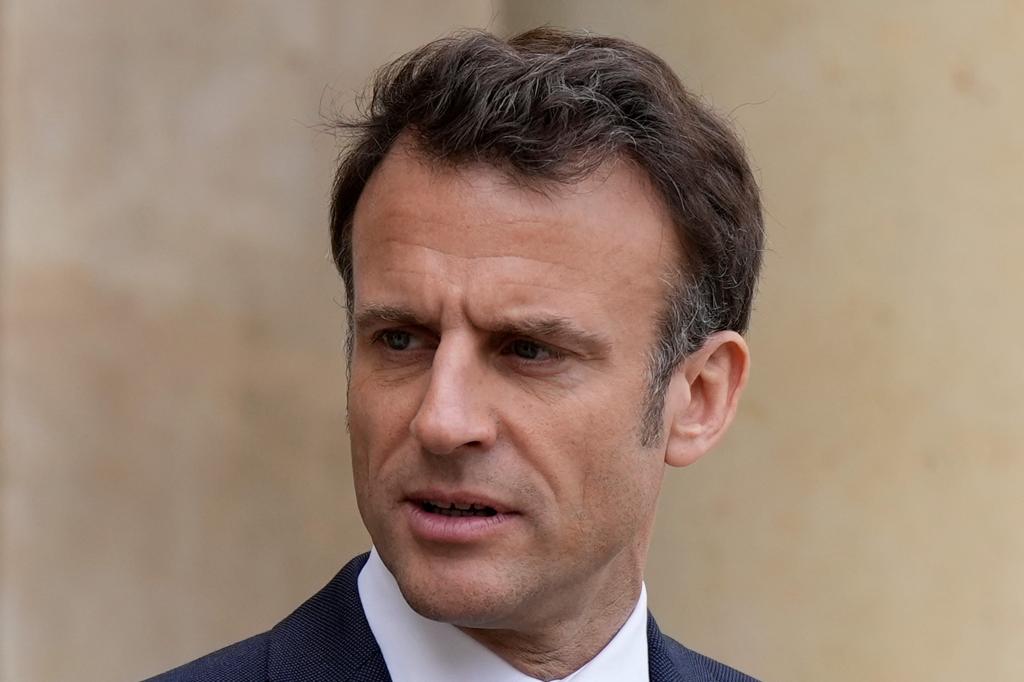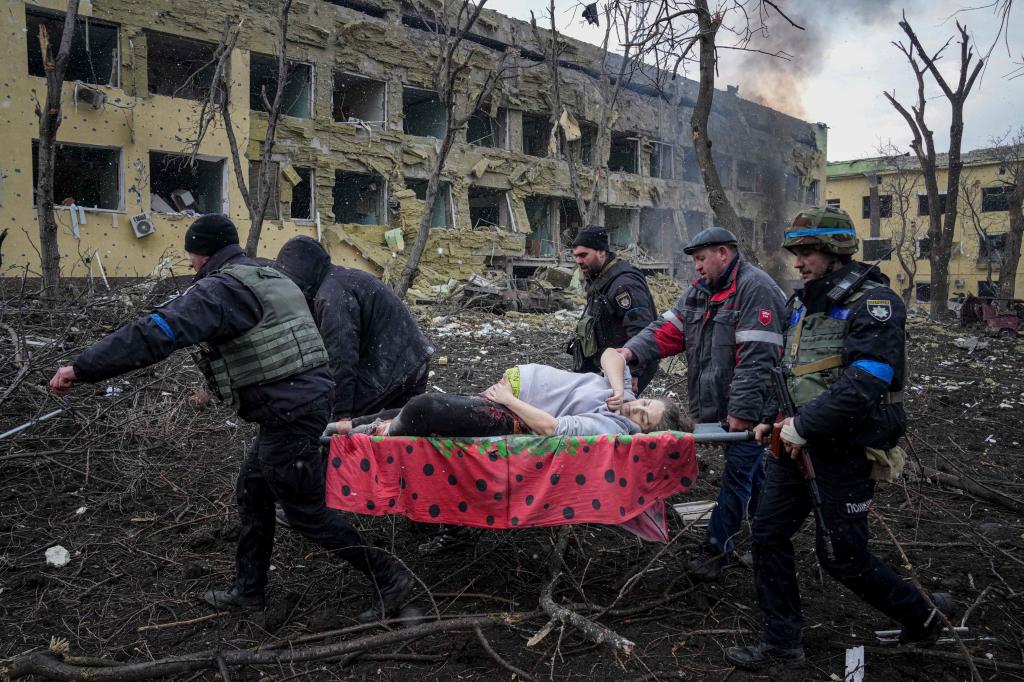When I first arrived in London in 1986, it was hard to find a trash can on the streets.
Back then, Britain was under attack by a series of horrific bombings by the Irish militia known as the IRA.
Only two years earlier, an assassination resulted in five deaths and 31 injuries (Thatcher escaped unscathed).
The department store killed six and injured 90.
The Troubles, as the violence was known, lasted for three decades with an estimated 3,500 people losing their lives.
This is why it’s so important to see the Good Friday agreement – which was signed 25 years ago this week – as truly monumental diplomacy. Brokered by Prime Minister Tony Blair and his Chief of Staff Jonathan Powell – as well as US Senator George Mitchell – the agreement established peace in Northern Ireland which has held until this day.
In 1998, Tony Blair had not yet been or derided He was the man who ended one of the most brutal sectarian conflicts in modern European history.
It started in the 1960s when Catholics in Northern Ireland sought justice and equality with their Protestant neighbors.
It spiraled into an all-out war between the two sects across both cities and the countryside: kneecapping, snipers, murder, kidnapping.
On January 30, 1972, 13 unarmed Catholic protesters were shot dead by British soldiers on
But the attacks in Britain also continued, including a which killed two and blew out windows for miles. The situation clearly had to change.
Two years later, Blair and Powell flew to Stormont Castle in East Belfast.
Their decision to negotiate with the Irish government — along with eight political parties including the IRA and Protestant militias — marked the beginning of the end of The Troubles.
But it also meant the leaders were talking to terrorists.
Until then, armed groups like the IRA were banned from negotiation tables. Responsible for countless deaths and acts of terror, most Britons viewed their hands as awash with blood.
Years later, Jonathan Powell wrote in his book that “the notion of engaging with the IRA and other terrorist groups was unthinkable” at the time.
Powell had personally been touched by IRA terror – his father was wounded in an IRA bombing – and had refused to shake hands with his IRA counterparts just a year before the Good Friday talks began.
Powell said he regretted that action, seeing it as short-sighted.
He now runs the London charity , which specifically works with non-governmental organizations – including militia groups such as Colombia’s FARC, which some consider terrorists – to bring them to negotiating tables.
War has once again descended upon Europe and the Good Friday talks offer important lessons in the effort to resolve it.
The key takeaway is that ending wars requires flexibility; not capitulation, of course, but a reasonable (and realistic) sense of willingness and open-mindedness — along with a strong dose of patience.
History has many precedents for this thinking beyond just Northern Ireland.
Never Miss a Story
Sign up to get the best stories straight to your inbox.
Thanks for signing up!
At one point, for instance, the British government labeled legendary independence leaders such as Menachem Begin, Jomo Kenyatta, and Archbishop Makarios terrorists.
They tried to assassinate Begin, imprisoned Kenyatta, and exiled Makarios to Seychelles.
Yet all three were eventually welcomed to London as distinguished heads of their respective nations – Israel, Kenya, and Cyprus.
This brings us to the current war in Ukraine.
Should we push for negotiations?
As the director of the war crimes unit – which fights for justice and truth in Ukraine – I view Russian President Vladimir Putin’s atrocities in Ukraine as severe as any committed by the vilest regimes, such as ISIS in the Near East.
In no way should Putin ever step foot on Downing Street.
Yet even with most Western leaders agreeing with me about Putin, flexibility, and open-mindedness have managed to remain on the table.
Just last week, French President Emmanuel Macron traveled to China
Premature, perhaps – but a necessary sign that someday, somehow, an end to the conflict can be achieved just like it was in Northern Ireland.
Without a doubt, Russia’s invasion of Ukraine is of a far different scale than Northern Ireland’s Troubles.
Which is why, for the moment, feasible negotiations are off the table.
Ukrainians cannot stomach the thought of conceding territory seized by Russia. And rightly so.
But with Putin’s longevity increasingly uncertain and Ukraine’s ongoing weapons requirements beginning to meet resistance, efforts such as Macron’s will continue.
Like at the end of the Troubles, flexibility and fresh thinking are quietly taking root across the world, even if their eventual fruits can not yet be imagined.
Even if the politicians and non-governmental representatives who’ll ultimately negotiate that peace also are yet to be imagined.
When wars end, we often ask, “What took so long?”
In the case of Northern Ireland, it was three decades. The Paris Peace Talks, which ended the Vietnam War, only required a decade – but should have been far sooner.
No one wishes a similar fate for Ukraine.
But negotiations are not just about negotiators such as Blair and Ahern – but timing.
Begin too early, and, as in Bosnia, you risk rewarding war criminals and sowing strife for years to come. That would be intolerable for Ukraine.
Still, we must look back on the Good Friday Agreement as a necessary symbol of hope — as well as a model for what multi-party negotiations can achieve.
We must learn carefully from Blair’s finest hour and take note: While today might not yet be the day – this hour is not yet the hour – sworn enemies can eventually sit down and make peace.
Janine di Giovanni is the Executive Director of The Reckoning Project and the author of nine books on conflict and war.














